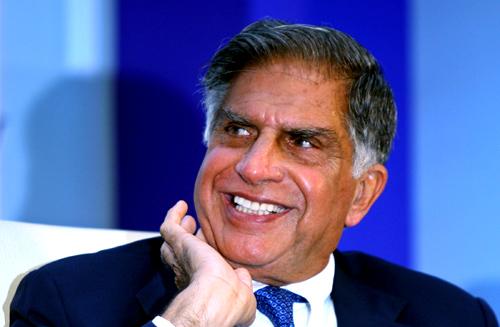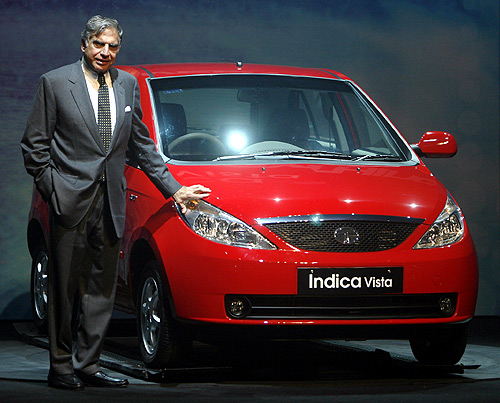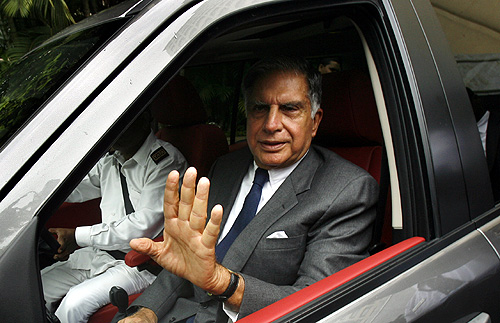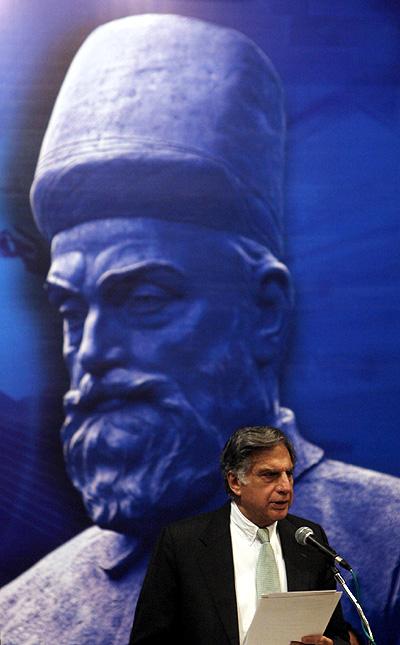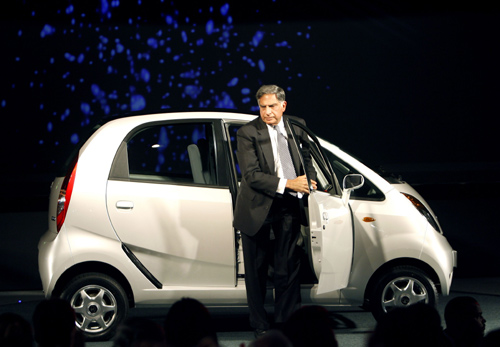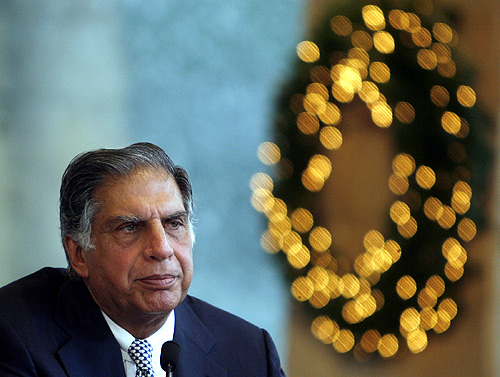 | « Back to article | Print this article |
What makes Ratan Tata regret
Tata group Chairman Ratan Tata says he has not been able to make the conglomerate a 'truly open, flat, transparent organisation'.
"Perhaps internally, I have not been able to create the truly open, flat, transparent organisation that I had hoped we could do," Tata said when asked what he could not do that he wanted to during his tenure as the head of the Tata group.
Tata said his group, which was 'a traditionally manufacturing company in a sellers market', did not succeed in 'really embracing the customers' values'.
The Tata group was dragged into the 2G spectrum allocation controversy after the tapes of corporate lobbyist Nira Radia were leaked to the media.
Click NEXT to read further. . .
What makes Ratan Tata regret
The three licenses of Tata Teleservices were among the 122 licenses cancelled by the Supreme Court earlier this year.
Tata, however, hoped that he would be able to pass on the legacy to successfully move ahead without compromising value system and ethics.
"I think what I want the legacy to be would be to say that we achieved the growth and the prosperity that the group has had with the value system and ethical standards that we
have tried to retain and not succumb to the pressures of, the subjective pressures that exit to get things done," Tata told Bloomberg UTV.
Click NEXT to read further. . .
What makes Ratan Tata regret
Dwelling further on inability to achieve his goals, Tata said: ". . .I think we haven't as a group been able to touch the levels of the population that I had hoped, the Nano is one example."
Serving the bottom of the pyramid in India with affordable products is a real and ongoing challenge and the Tata group has not succeeded in being innovative enough, he said.
Tata, who is set to step down in December from the helm of the $100 billion conglomerate, said that after the retirement he would spent time on philanthropic activities related to rural development, water conservation and nutrition to children and pregnant women.
Click NEXT to read further. . .
What makes Ratan Tata regret
"I am going to continue to be the Chairman of the foundation.
"I will focus on rural development, conservation of water and my most visible goal is to do something in nutrition to children in India and pregnant mothers.
"Because that would change the mental and physical health of our population in years to come," he added.
Tata group, through its various charitable initiatives, spends about 4.5 per cent of its net profit in philanthropic activities, Tata said.
Click NEXT to read further. . .
What makes Ratan Tata regret
Tata said India has two to three major social challenges such as energy and infrastructure, which were going to be stumbling blocks of progress if not dealt with.
". . . and the other is going to be water. We have inadequate system of conserving rain water. . . four-fifth of our rain water runs off into the sea," he added.
Tata said with consumption of underground water for agriculture, the country is going to have serious water issues sooner or later.
Amid the challenges, Tata said India's ever growing population, which was once considered to be a problem, is turning out to be an advantage for the country.
Click NEXT to read further. . .
What makes Ratan Tata regret
"Population is said to be a problem. Today it seems to be a bonus. . .Earlier over-population was considered to be a curse, it's not so today," he said, however, adding it was a double edged sword.
Tata said by 2035, India would have the largest working class population that would be an asset.
"At the same time you have to feed, you have to educate and you have to give jobs to all these people," he said, adding if it were to be done, it would become a major challenge and catastrophe.
"So it's a two edge sword. If it is pursued correctly and dealt with correctly, is an issue with tremendous power," Tata said.
